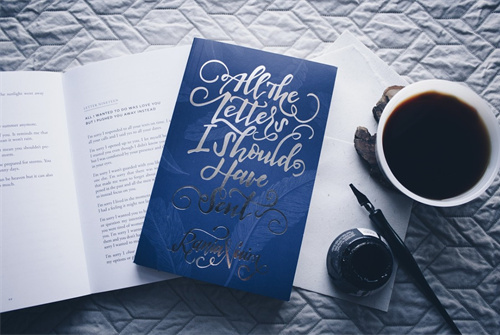悲傷的名言警句中英對(duì)照
Happinessisbeneficialforthebody,butitisgriefthatdevelopsthepowersofthemind.(MarcelProust,Frenchwriter)
愉快有益于人的身體,但只有悲傷才能培養(yǎng)心靈力量。(法國(guó)作家普魯斯M)
Andsmile,smile,smile
讓微笑永遠(yuǎn)充滿你的心田
Asemptyvesselsmaketheloudestsound,sotheythathaveleastwitarethegreatestbabblers.(Plato,AncientGreekPhilosopher)
正像空容器發(fā)出的聲音最大,智力最低者最善于嘮叨不休。(古希臘哲學(xué)家柏拉圖)
Acertainamountofcareorpainortroubleisnecessaryforeverymanatalltimes.Ashipwithoutaballastisunstableandwillnotgostraight.(ArthurSchopenhauer.Gemanphilosopher)
一定的憂愁、痛苦或煩惱,對(duì)每個(gè)人都是時(shí)時(shí)必需的。一艘船如果沒(méi)有壓艙物,便不會(huì)穩(wěn)定,不能朝著目的地一直前進(jìn)。(德國(guó)哲學(xué)家叔本華A)
Amanwhofearssufferingisalreadysufferingfromwhathefears.(MichelEyquemMontaigne,Frenchessayist)
害怕痛苦的人已經(jīng)在承受他所害怕的痛苦了。(法國(guó)散文家蒙田ME)
Betteronesuffer,thananationgrieve.(JohnDrydon,Britishpoet)
寧可一人受苦,不使民族悲傷。(英國(guó)詩(shī)人德萊頓J)
BetweengriefandnothingIwilltakegrief.(WilliamFaulkner,Americanwriter)
在悲痛與虛無(wú)之間,我愿意選擇悲痛。(美國(guó)作家福克納W)
Comparison,morethanreality,makesmenhappyorwretched.(ThomasFuller,Americaninventor)
使人高興的'或者沮喪的,與其說(shuō)是事實(shí),還不如說(shuō)是攀比。(美國(guó)發(fā)明家富勒T)
Forevilnewsridesfast,whilegoodnewsbaitslater.(JohnMilton,Britshpoet)
好事不出門,壞事傳千里。(英國(guó)詩(shī)人彌爾頓J)
Havenodoubtsbecauseoftroublenorbethoudiscomtited
你雖然在困苦中也不惴惴不安
forthewateroflife'sfountainspringethfromagloombed
從暗處往往流出生命之泉
Sitnotsadbecausethattimeafitfulaspectweareth
不要因?yàn)闀r(shí)運(yùn)不濟(jì)而郁郁寡歡,忍耐雖然最痛苦
Patienceismostbitter,yetmostsweetthefruititbearth
其果實(shí)也最香甜
Hebestcanpitywhohasfelttheworse.(JohnGay,Britishdramstistandpoet)
感受過(guò)悲傷的人最富有同情心。(英國(guó)劇作家、詩(shī)人蓋伊J)
Hewhoinadversitywouldhavesuccor,lethimbegenerouswhileherestssecure.(Saki,Britishwriter)
誰(shuí)想在逆境中得到援助,就應(yīng)在身處順境時(shí)待人寬厚。(英國(guó)作家薩基)
Itellyouhopelessgriefispassionless.(E.B.Browning,Britishpoetess)
我告訴你,沒(méi)有希望的悲傷是沒(méi)有激情的。(英國(guó)女詩(shī)人布朗寧EB)
Itisnotmiserabletobeblind;itismiserabletobeincapableofen-duringblindness.(JohnMilton,Britishpoet)
失明本身并非是悲慘的,不能忍受失明才是悲慘的。(英國(guó)詩(shī)人彌爾頓J)
Lifeismadeupofsobs,snifflesandsmileswithsniffespredomi-nating.(O.Henry,Americanwriter)
人生是由嗚咽、抽泣和微笑組成的,而在三者之中,抽泣處于支配地位。(美國(guó)作家歐享利)
Nomancanbebravewhoconsiderspainthegreatesteviloflife;ortemperate,whoregardspleasureasthehighestgood.(Cicero,ancientRomanstatsman)
把痛苦視為生活中最大的禍害的人不可能勇敢;把歡樂(lè)視為生活中最美妙的人不會(huì)自我節(jié)制。(古羅馬政治家西塞羅)
Onemustmournnotthedeathofmenbuttheirbirth.(CharlesScondatMontesquieu,FrenchthinkerandPhilosopher)
人所悲傷的并不是人類的死亡而是他們的誕生。(法國(guó)思想家、哲學(xué)家孟德斯鳩)
Pureandcompletesorrowisasimpossibleaspureandcompletejoy.(LeoTolstoy,Russianwriter)純粹的、完全的哀愁和純粹的、完全的歡樂(lè)一樣都是不可能的。(俄國(guó)文學(xué)家托爾斯泰L)
handicapsaman'spowSadnessdiminishesorerofaction.(BenedictdeSpinoza,DutchPhilosopher)
憂傷會(huì)減少或者妨害一個(gè)人行動(dòng)的力量。(荷蘭哲學(xué)家斯賓諾莎B)
Sorrowandtroubleeithersoftentheheartorhardenit.(JamesMackintosh,Britishwriter)悲哀和煩惱不是使人心軟,就是使人心狠。(英國(guó)作家麥金托什J)
Tearsarethesilentlanguageofgrief.(Voltaire,Frenchphilosopher)
眼淚是無(wú)聲的、悲傷的語(yǔ)言。(法國(guó)哲學(xué)家伏爾泰)
Thefiercestagonieshaveshorestreign.(WilliamCrllenBryant,Americanpoet)
最猛烈的痛苦持續(xù)的時(shí)間也最短。(美國(guó)詩(shī)人布萊恩特WC)
Themostgloriousmomentinyourlifearenotthesocalleddaysofsuccess,butratherthosedayswhenoutofdejectionanddespairyoufeelriseinyouachallengetolife,andthepromiseoffutureaccomplishment.(GustaveFlaubert,Frenchwriter)
的一生中,最為輝煌的一天并不是功成名就的那些天,而是從悲嘆與絕望中產(chǎn)生對(duì)人生的挑戰(zhàn)和對(duì)未來(lái)輝煌的期盼的那些日子。(法國(guó)作家福樓拜G)
Hepainofthemindisworsethanthepainofthebody.(PubliusSyrus,SyrianLatinwriter)心理疾病比身體疾病更糟。(敘利亞拉丁語(yǔ)作家西拉士P)
Thesecretofbeingmiserableistohaveleisuretobotheraboutwhetheryouarehappyornot.(GeorgeBernardShaw,Britishdramatist)
痛苦的秘密在于有閑功夫擔(dān)心自己是否幸福。(英國(guó)劇作家肖伯納.G.)
Tomournamischiefthatispastandgoneisthenextwaytodrawnewmischiefon.(WilliamShkespeare,Britishdramatist)
為了一去不復(fù)返的災(zāi)禍而悲傷將會(huì)抬致新的災(zāi)禍。(英國(guó)劇作家莎士比亞W)
上一篇:關(guān)于北京故宮的名言-經(jīng)典名人名言
下一篇:返回列表






